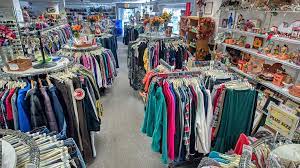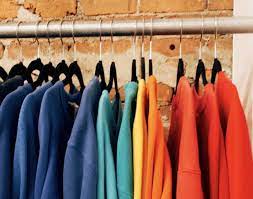Is Thrift Shopping Unethical?
Priscilla Febus
Trending Writer
As the saying goes, “one man’s trash, is another man’s treasure,” and in 2021 this phrase could not be truer for trendsetters everywhere. Recently it has become more popular on social for people to resell their clothes. Along with the trending hobby of thrift shopping, social media savvy fashionistas popularized haul videos featuring the amount of clothing they find at such low prices – and many of those videos racking up millions of views. While this helps the environment by buying second-hand and not falling into fast fashion, clothing resale can also negatively challenge those that are looking for clothing at a low price.

According to an IBIS World report on the thrift store industry in the United States, the largest market for the industry is customers with annual incomes below $30,000. That is because thrift stores were created with the purpose of helping those of low-income households to have accessibility to clothing that is still in good condition at a low price. Not only that, but thrift stores like Goodwill and the Salvation Army use the money earned to fund programs that help those in need such as disaster relief or food for the hungry.
While everyone should consider buying second-hand and thrift occasionally, it becomes questionable once a $4 shirt becomes a $30 shirt. Depop has become a popular online platform for reselling items and has over 21 million users. While some users utilize the app to clean out their closets, others have used it to make a profit off thrifted clothes they found for low prices and resell them for double or triple the price.

Not only is reselling lowering the accessibility of clothing to those looking to save money and be sustainable, but it can affect the future of thrift stores. Thrift stores could be forced to start raising their prices as they begin to see a demand in clothing, as well as if they begin to see the trend of people willing to pay higher prices for some pieces of secondhand clothing.
While thrifting is not completely unethical, as it can be good for the environment and for our wallets. With the popularity of TikTok thrifting hauls, it is evident that there are many hidden gems that can be found as well. But apps like Poshmark and Depop become questionable ethically when people are looking to gain a profit off thrifted clothing, especially when marked up at an absurdly higher price.
Contact Priscilla at febuspri@shu.edu

